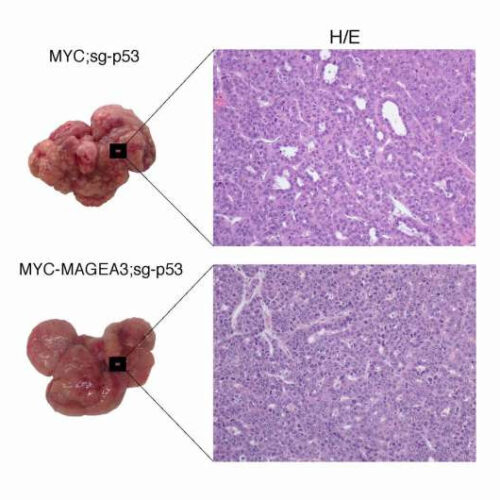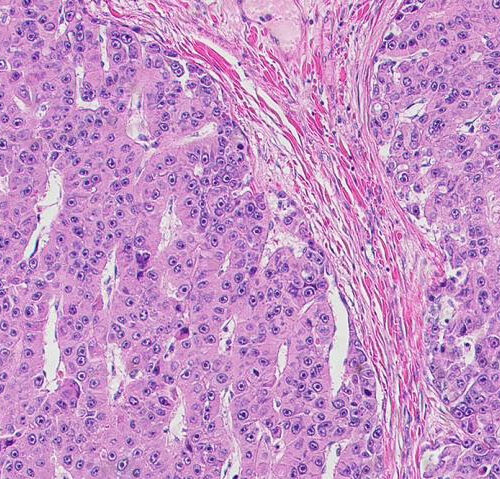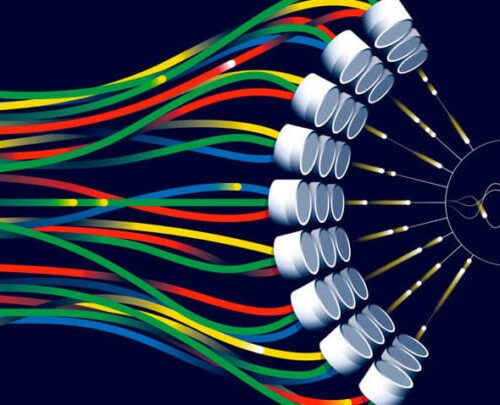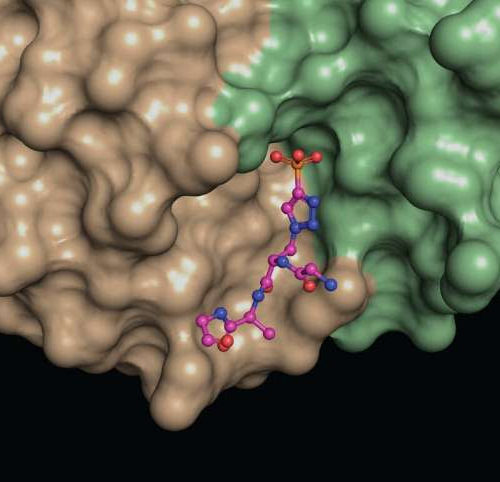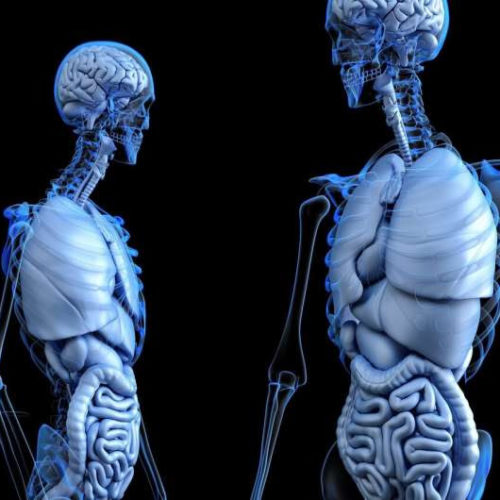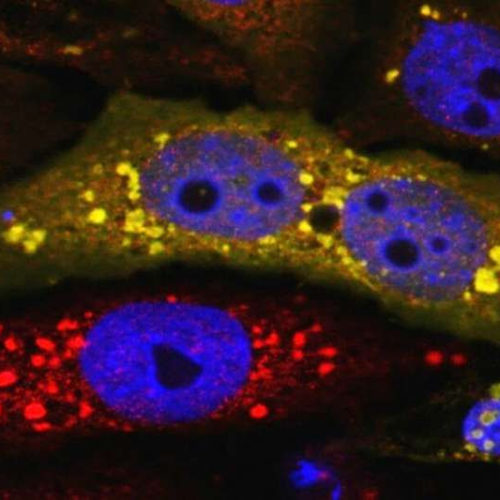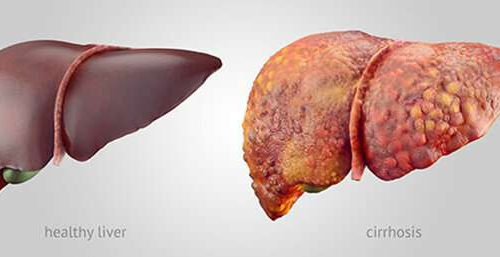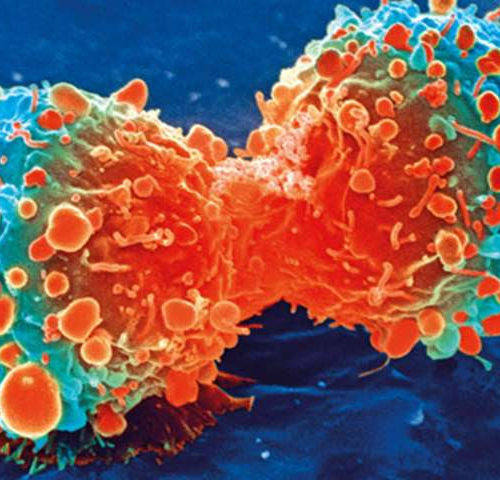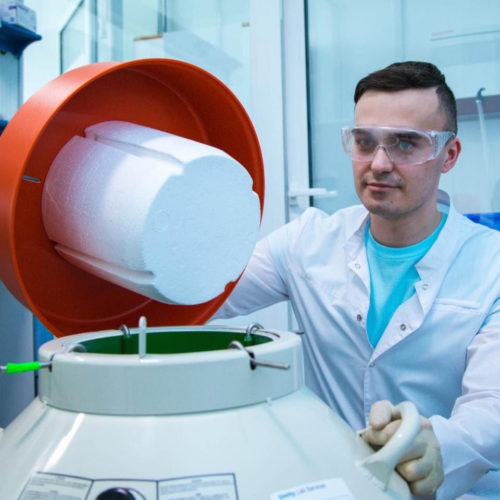by Public Library of Science Histological pictures of aggressive hepatic tumors obtained from transgenic mice (using tail vein injection of transposable genetic elements) with induced overexpression of MAGEA3. Credit: Craig AJ et al., 2021, PLOS Genetics Drugs targeting the gene MAGEA3 may help block the growth of hepatocellular carcinoma (HCC), the most common type of primary...
Tag: <span>Liver cancer</span>
Toward the first drug to treat a rare, lethal liver cancer
IMAGE: NEW DRUGS TO ELIMINATE FIBROLAMELLAR TUMOR CELLS, PICTURED HERE, WERE IDENTIFIED USING AN EXPEDITED APPROACH. CREDIT: LABORATORY OF CELLULAR BIOPHYSICS AT THE ROCKEFELLER UNIVERSITY Treatment options for deadly liver cancer, fibrolamellar carcinoma, are severely lacking. Drugs that work on other liver cancers are not effective, and although progress has been made in identifying the...
Ultrasound Technology Developed at U-M now in Clinical Trials for Liver Cancer
The University of Michigan is one of eight sites around the country that will enroll patients in a clinical trial to evaluate the safety and efficacy of a technology that uses ultrasound to treat liver tumors. The #HOPE4LIVER trial will employ the noninvasive technique to mechanically destroy primary and metastatic liver tumors. Illustration of histotripsy technology. Image...
Team reveals never-before-seen antibody binding, informing liver cancer, antibody design
by Salk Institute Caption: A structural snapshot of a phosphohistidine analogue (ball and stick model) nestled at the interface between different areas (green, brown) of a phosphohistidine antibody. Such structures provide insights into the molecular properties of the antibodies, which makes them useful for revealing elusive phosphohistidine-containing proteins in cells. Credit: Salk Institute In structural biology,...
Gentle stroll on treadmill helps prevent liver cancer
by Newcastle University Credit: CC0 Public Domain Regular gentle exercise could play a role in reversing liver damage that can lead to cancer, suggests a new study. Scientists at Newcastle University showed that aerobic exercise in mice reduced the levels of inflammation in the liver that develops with ageing, which reversed liver damage and prevented tumours from developing, with only one mouse...
A new drug target for liver cancer
by National University of Singapore The insoluble form of p62 protein is abundant in liver cancer cells where it causes hyper-activation of the cancer-promoting Nrf2 signalling pathway. The image shows the recruitment of the MOAP-1 protein at the insoluble p62 protein aggregates in the liver cancer cells. The MOAP‐1 protein (yellow/orange) is co-located with the p62...
Universal gut microbiome-derived signature predicts cirrhosis
by University of California – San Diego Nonalcoholic fatty liver disease (NAFLD) is the leading cause of chronic liver disease worldwide, affecting an estimated one-quarter of the global population. It is a progressive condition that, in worst cases, can lead to cirrhosis, liver cancer, liver failure and death. In a new paper published online June...
Scientists discover a new mechanism controlling liver cancer development
CNIC scientists have designed an animal model to study the development of liver cancer caused by bile acids CENTRO NACIONAL DE INVESTIGACIONES CARDIOVASCULARES CARLOS III (F.S.P.) A CHOLANGIOCARCINOMA UNDER THE MICROSCOPE. view more CREDIT: CNIC Researchers at the Centro Nacional de Investigaciones Cardiovasculares (CNIC) have discovered a mechanism controlling the development of a type of...
Researchers discover a metabolic enzyme that spurs the growth and spread of liver cancer
by Sanford Burnham Prebys Medical Discovery Institute An enzyme that blocks the metabolic processes that contribute to the rapid growth and spread of liver cancer has been discovered, according to a study by researchers at Sanford Burnham Prebys and Weill Cornell Medicine. The findings, published in Cancer Cell, could spur development of new therapies for...
Scientists found out how nanoparticles kill cancer cells
In the authors’ opinion, this research will help to treat oncology IMMANUEL KANT BALTIC FEDERAL UNIVERSITY CREDIT: IMMANUEL KANT BALTIC FEDERAL UNIVERSITY Scientists from the Immanuel Kant Baltic Federal University (IKBFU) and National University of Science and Technology “MISiS” have studied how magnet nanoparticles affect cancer cells in the human liver. In the authors’ opinion,...

